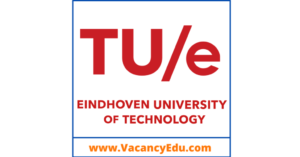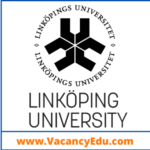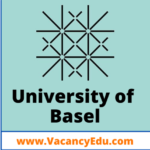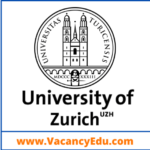Eindhoven University of Technology, Netherlands invites online Application for number of Fully Funded PhD Degree at various Departments. We are providing a list of Fully Funded PhD Programs available at Eindhoven University of Technology, Netherlands.
Eligible candidate may Apply as soon as possible.
(01) PhD Degree – Fully Funded
PhD position summary/title: 2 PhD positions on Data-based Performance Optimization of Controllers for Metrology Equipment
We invite highly motivated students with a strong background in dynamical systems, mathematical system theory and control to apply for one of these PhD positions within the Dynamics and Control section at the Department of Mechanical Engineering, Eindhoven University of Technology. The mission of the Dynamics and Control Section is to perform research and train next-generation students on the topic of understanding and predicting the dynamics of complex engineering systems in order to develop advanced control, estimation, planning, and learning strategies which are at the core of the intelligent autonomous systems of the future: Designing and realizing smart autonomous systems for industry and society.
Complex high-tech systems, such as semiconductor equipment, require extremely high positioning accuracy (at nanometer level) to perform manufacturing and inspection of computer chips. In practice, the performance of (model-based) controllers is limited by model uncertainties and unknown disturbances. This project aims to develop data-based optimization techniques to automatically optimize/tune controllers to warrant optimal performance. As a core industrial use case, we will consider the metrology equipment of Nearfield Instruments (https://www.nearfieldinstruments.com/).
Within this project, in which 2 PhD students will be employed at the Eindhoven University of Technology, you will develop novel tools data-based optimization to optimize motion control performance. This will make semiconductor equipment even more precise and faster. By this you will help to shape the semiconductor technology of the future. This position will help you to build both a strong academic and industrial research profile.
Deadline : 31-08-2025
(02) PhD Degree – Fully Funded
PhD position summary/title: 2 PhD positions on heat storage for flexible industrial processes
This research project is part of the FLEXPower project. You’ll play a key role in revolutionizing the European process industry by driving the electrification of industrial heat, ultimately making it more resilient and climate-neutral. A key aspect of electrification of industry using fluctuating renewable electricity from solar and wind, is to allow for flexibility in the industrial demand. In the FLEXPower project, the focus is on heat storage and heat upgrading, particularly for industrial steam systems in food, paper and chemical industry.
The project has 2 PhD positions:
- Position 1: Heat storage using high-temperature phase change materials in combination with industrial heat pumps to efficiently generate heat. An important aspect is the dynamic performance of the heat pump. It is expected that you will team up with parallel developments at TNO (see www.tno.nl), where experimental work on dynamic heat pump and heat storage combinations will be carried out.
- Position 2: Heat storage using high-temperature thermochemical materials. Thermochemical materials can store and release a large amount of heat at almost constant temperature level. However, their energy density can be significantly higher than for phase change materials, and the output temperature can be tuned by the system pressure. Also here, you will spend time at TNO to exchange industrial process- and thermochemical expertise and carry out experiments.
Deadline : 17-08-2025
View All Fully Funded PhD Positions Click Here
(03) PhD Degree – Fully Funded
PhD position summary/title: DC7 PhD In-situ evaluation of the EMI footprint of large interconnected systems
Applications are invited for the PhD position (“Doctoral Candidates”, DCs) to be funded by the Marie-Skłodowska-Curie Doctoral Network “iSense– European Doctoral Network on In-Situ Monitoring of Electromagnetic Interference” within the Horizon Europe programme of the European Commission.
Objectives:
- Advance the concept of the EMI footprint to in-situ evaluations for complex interconnected systems.
- Explore advanced measurement setups such as the Vibrating Intrinsic Reverberation Chamber (VIRC), near-field scanning and distributed sensing.
- Incorporate cutting-edge algorithms, including machine learning, to the EMI footprint.
Deadline : 27-07-2025
(04) PhD Degree – Fully Funded
PhD position summary/title: Klinische PhD Cardiovasculaire koppeling tussen moeder en foetus
De derdelijns geboortezorg in Máxima Medisch Centrum (Máxima MC) is een zeer specialistische zorgdiscipline waarin hoogzwangere vrouwen intensief bewaakt worden vanwege ernstige dreiging van vroeggeboorte of pathologie in de zwangerschap. Omdat complicaties in de periode rond de bevalling een grote impact hebben op de rest van het leven van moeders en pasgeborenen, is het cruciaal dat zij tijdens deze periode de best mogelijke foetomaternale monitoring ontvangen zodat op tijd kan worden ingegrepen. Máxima MC zet zich in voor de continue verbetering van deze tertiaire kraamzorg.
Er is aangetoond dat en late miskramen verband houden met zowel een abnormale ontwikkeling van het cardiovasculaire systeem van de foetus (fCVS) en de placenta. Zo moet het maternale cardiovasculaire systeem (mCVS) zich aanpassen zodat de ontwikkeling van de placenta op de juiste manier kan plaatsvinden, zodat een effectieve interface tussen moeder en kind ontstaat. Bij zwangerschapscomplicaties wordt vaak een maladaptie geconstateerd. Echter, hoe deze maladaptatie leidt tot zwangerschapsgerelateerde cardiovasculaire complicaties is nog niet voldoende onderzocht. Het MAPPING-project omvat een uitgebreid onderzoek naar de koppeling tussen mCVS en fCVS met als uiteindelijk doel het verbeteren van klinische uitkomsten na zwangerschap.
Deadline : 30-07-2025
(05) PhD Degree – Fully Funded
PhD position summary/title: Klinische PhD in continue elektrofysiologische monitoring op obstetrische high care
De derdelijns geboortezorg in Máxima Medisch Centrum (Máxima MC) is een zeer specialistische zorgdiscipline waarin hoogzwangere vrouwen intensief bewaakt worden vanwege ernstige dreiging van vroeggeboorte, pathologie in de zwangerschap en bariatrische complicaties. Omdat complicaties in de periode rond de bevalling een grote impact hebben op de rest van het leven van moeders en pasgeborenen, is het cruciaal dat zij tijdens deze periode de best mogelijke foetomaternale monitoring ontvangen zodat op tijd kan worden ingegrepen. Máxima MC is gedreven om deze derdelijns geboortezorg continu te verbeteren.
Op dit moment dient zich een grote mogelijkheid aan tot het verbeteren van monitoring van het foetale hartritme en baarmoederactiviteit dankzij innovaties op gebied van elektrofysiologisch gemeten cardiotocografie (eCTG). Deze nieuwe methode voor monitoring tijdens de zwangerschap maakt het mogelijk, in tegenstelling tot regulier CTG, om patiënten 24/7 te monitoren. Hierdoor kan cumulatieve en accuratere informatie over de foetale conditie en de baarmoederspieractiviteit verzameld worden, zodat eventuele interventies effectiever kunnen worden ingezet en daarmee de klinische uitkomsten verbeteren. Dit wordt onderzocht in de NIEM-O studie.
Deadline : 28-07-2025
Polite Follow-Up Email to Professor : When and How You should Write
Click here to know “How to write a Postdoc Job Application or Email”
(06) PhD Degree – Fully Funded
PhD position summary/title: PhD Mechanical Contact Information Processing of Soft and Large-area Robot Skin
The demand for autonomous robots capable of physically interacting with the world in flexible and adaptable ways is rapidly increasing across industries and society. These robots are needed to perform heavy, non-ergonomic tasks in unstructured environments or to assist humans in physically demanding jobs. Tactile robotics, an emerging and challenging field, focuses on developing tactile sensing and perception technologies that enable robots to intelligently respond to contact.
While significant progress has been made in finger-scale tactile sensing, challenges persist in developing soft, large-area robotic skin. A major hurdle is gathering sufficient contact information on the robot’s surface when the skin covers large, curved body areas with only a limited number of embedded sensors.
The important contact information, such as contact area, direction, pressure distribution, even slip incipient, is often not directly measurable. Instead, this information must be estimated from sensor signals produced by the mechanical model of the skin during contact. Advancing our understanding of this mechanical contact information processing is crucial for enhancing the feasibility and value of robotic skin technologies.
Deadline : 28-09-2025
(07) PhD Degree – Fully Funded
PhD position summary/title: PhD on ‘Flexibility in Electrified Industrial processes’
This research project is part of the DEFLAME project. As a PhD researcher in the DEFLAME project, you’ll play a key role in revolutionizing the European process industry by driving the electrification of industrial heat. A key aspect of electrification of industry using variable renewable electricity from solar and wind, is to allow for flexibility in the industrial demand.
In this PhD position, you will explore different flexibility options in electrified industrial processes, aiming to develop a merit order. This encompasses multiple aspects, such as:
- An inventory of the technical and economic characteristics of flexibility options at different timescales, such as hybrid heating by e-boilers/heat pumps/vapor recompression, heat storage (both above ground and underground), electricity storage, flexibilization of processes by installing controllable excess capacity,
- Combining the options above into integrated flexibility solutions for the different types of process industries (e.g. chemical, steel, non-metallic minerals, food processing) and assess associated costs and barriers for each of the identified flexibility solutions,
- Integrate the solutions in a dynamic system model (e.g. building on system models already existing in TU/e, TU Delft or TNO).
- Construct the merit order for flexibility at different timescales and for different industrial processes based on dynamic modelling.
Deadline : 20-07-2025
(08) PhD Degree – Fully Funded
PhD position summary/title: PhD on AI for Safety-Critical Multi-modal Learning
We are seeking a highly motivated PhD student to join our research team in an ambitious project at the intersection of Safe AI, Resource Constrained, and Multi-Modal Learning. The focus of this PhD is on developing novel state-of-the-art AI models for safety-critical applications in which resilience, autonomy, and intelligence are required.
The overarching goal of this project is to develop efficient, trustworthy AI models that have a robust understanding of their environment based on various data sources. For example, the model should be able to integrate camera, radar, and other sensor modalities. Particular attention will be paid to transformer- and post-transformer architectures, and how to adapt them to learn efficiently on resource-constrained hardware, for instance with transfer learning and quantization techniques.
A key challenge of this project will be to design novel transformer-based architectures and adaptation techniques that are both efficient and reliable. The latter will require you to investigate and ultimately control the latent representations of knowledge in the model. This can be tackled from the viewpoint of various areas of machine learning, such as disentanglement of features, out-of-distribution awareness, robustness to adversarial attacks, and explainability, including the development of formal robustness guarantees that provide insights into the fundamental characteristics of the model that contribute to its safety and reliability in real-world applications. You will also assist in the integration and experimental evaluation of these techniques. Explainability will play an important role here, ensuring that models validate their explanations and provide insight into their latent representations, identifying what the model deems relevant for its predictions.
Deadline : 20-07-2025
Click here to know “How to Write an Effective Cover Letter”
(09) PhD Degree – Fully Funded
PhD position summary/title: PhD on Collective Decision-Making Algorithms for Autonomous Driving
Are you eager to tackle the scientific challenges of designing advanced collective decision-making algorithms for autonomous vehicles? In this PhD position, you will contribute to pioneering research within the AIGGREGATE project at the control systems group in the electrical engineering department. You will focus on creating model predictive control algorithms that are provably safe for autonomous driving. Your work will involve integrating cutting-edge AI techniques with control theory to develop algorithms capable of making proactive, human-centric decisions.
These algorithms will leverage collective and predictive state awareness to safely navigate complex scenarios involving both connected and non-connected road users. This position offers a unique opportunity to contribute to the future of mobility by addressing challenges such as minimizing unintended harm, preventing gridlocks, and enhancing user acceptance of autonomous systems. You will be part of a collaborative environment that values inclusivity and innovation, working alongside experts in control theory, autonomous systems and formal methods.
As this project spans multiple disciplines, candidates should have experience with or a strong interest in mastering critical concepts from both control engineering and computer science. The work will involve applying advanced control methods such as model predictive control and control barrier functions, alongside computer science techniques including formal specifications, rigorous testing, and formal verification.
Deadline : 28-07-2025
(10) PhD Degree – Fully Funded
PhD position summary/title: PhD on combined physics- and machine learning-based modeling of complex dynamical systems
We invite highly motivated students with a strong background in dynamical systems, machine learning, and mathematical system theory to apply this PhD position within the Dynamics and Control section at the Department of Mechanical Engineering, Eindhoven University of Technology. The mission of the Dynamics and Control Section is to perform research and train next-generation students on the topic of understanding and predicting the dynamics of complex engineering systems in order to develop advanced control, estimation, planning, and learning strategies which are at the core of the intelligent autonomous systems of the future: Designing and realizing smart autonomous systems for industry and society.
The design and operation of complex high-tech systems, such as semiconductor equipment requires the construction of highly accurate (multi-physics) models to predict their behaviour. While physics-based models are still used in practice, they lack the extreme accuracy required due to unavoidable model mismatch (especially in a multi-physics context). In contrast, AI and machine learning can potentially help to construct highly accurate models; however, such models typically lack interpretability, and generalizability beyond the training dataset. This project aims to synergize both approaches in a hybrid modelling framework. As a core industrial use case, we will consider the semiconductor equipment for heterogeneous integration (hybrid bonding) of ASMPT (https://www.asmpt.com/).
Within this project, in which 2 PhD students will be employed at the Eindhoven University of Technology, you will develop novel tools for such hybrid modeling to generate highly predictive dynamical models. This will help to design and operate the semiconductor equipment of the future. This position will help you to build both a strong academic and industrial research profile.
Deadline : 31-08-2025
Connect with Us for Latest Job updates
(11) PhD Degree – Fully Funded
PhD position summary/title: PhD on Continuous Real-Time Biomolecular Sensing with Single-Molecule Resolution
Continuous sensors are available in society and are used by patients to monitor their glucose levels. However, continuous sensing is not yet available for monitoring low-concentration molecules such as proteins, drugs, and nucleic acids. That’s what we want to achieve!
The sensing technologies that are being developed in the Molecular Biosensing group (MBx, see www.tue.nl/mbx) are unique in the world. The sensors are based on reversible single-molecule interactions, for the continuous monitoring of biomolecules at low concentrations. The sensing platform is called Biosensing by Particle Motion (BPM), using particles on a sensing surface that change their motion due to the binding of analyte molecules.
In your PhD project, you will study biomolecular aspects of BPM sensors, such as affinity binders and conjugation strategies, in order to determine how these affect the sensor performance. The PhD project is part of the iControl collaboration that includes TU Eindhoven, Erasmus Medical Center, Leiden Academic Center for Drug Research, and several companies (https://www.nwo.nl/en/projects/20854)
Deadline : 31-08-2025
Polite Follow-Up Email to Professor : When and How You should Write
(12) PhD Degree – Fully Funded
PhD position summary/title: PhD on Data Integration and Typology-Based BES Modelling for Positive Energy Districts
We are seeking a motivated PhD researcher to contribute to the development of scalable and efficient methods for building energy modelling to support Positive Energy Districts (PEDs).
In this position, you will develop a systematic, data-driven approach to identify and model representative building typologies based on public datasets such as BAG, 3DBAG, CBS, satellite imagery, and OpenStreetMap. Your work will focus on enabling the efficient generation of building energy models (BES) at the neighborhood scale, using clustering and sensitivity analysis to reduce model complexity without compromising accuracy. You will also contribute to the development of automated workflows for model creation.
This PhD is part of the EmPowerED research project, which brings together researchers, municipalities, grid operators, housing associations, and citizens to support the design of sustainable, affordable, and widely supported local energy systems. EmPowerED aims to accelerate the energy transition by placing citizens at the heart of PED development through new socio-technical models and tools. You will collaborate closely with a second EmPowerED PhD, who focuses on aligning model complexity with the specific needs of use cases defined by project stakeholders.
Deadline : 17-08-2025
(13) PhD Degree – Fully Funded
PhD position summary/title: PhD on Design and Nanoscopy of Metasurfaces for Fluorescence Enhancement
In this position, you will design, fabricate, and characterize your fluorescence-enhancing metasurfaces based on arrays of dielectric or semiconductor nanoparticles with negligible light-induced heating. You will leverage very recent advances in metasurfaces supporting low-loss optical modes, such as surface lattice resonances and bound states in the continuum. The design of these modes and their application toward single-molecule biosensing is exciting yet entirely unexplored. You will combine numerical simulations, nanofabrication, and super-resolution optical microscopy to achieve the project goals.
The project will be supervised by Prof. Gomez Rivas (Surface Photonics group) and co-supervised by Prof. P. Zijlstra (Molecular Plasmonics group) at TU/e. You will closely collaborate with the other PhD student employed on the project, who will work on the application toward single-molecule protein sensing.
Deadline : 27-07-2025
(14) PhD Degree – Fully Funded
PhD position summary/title: PhD on Dynamic Manipulation in Semi-Structured Industrial Settings
The demand for autonomous robots capable of physically interacting with the world in flexible and adaptable ways is rapidly increasing across industries and society. These robots are needed to perform complex and fast physical interaction tasks, spanning from fine manipulation, such as kitting and cables manipulation, to heavy non-ergonomic tasks in semi-structured environments, such as depalletization and truck unloading.
This PhD project wants to explore the latest advances in robot control, robot learning, physics simulation, and robot hardware to generate robust contact-rich and impact-aware strategies that allow to perform assembly and pick-and-place tasks in man-made environments, targeting industry relevant use cases at required execution speed. This is enabled by latest tactile robots that are impact-resilient, back-drivable, and capable of sensing contact interactions with the environment as well as computational hardware and parallel physics simulation software, enabling to train complex control policies or adaptable sampling-based MPC strategies. One use case of interest is, for example, the swift pick and place of heavy objects (>10kg) in clutter and in the presence of obstacles, with cycle times of 5 seconds.
Deadline : 18-08-2025
(15) PhD Degree – Fully Funded
PhD position summary/title: PhD on Energy-Efficient Online Learning Using Compute-in-Memory Architectures
The objective of this PhD project is to develop a gain-cell memory-based compute-in-memory (CIM) architecture to enable energy-efficient online learning at the edge. Conventional edge devices are limited by constraints in power, latency, and memory bandwidth, which pose significant challenges to real-time learning when using traditional von Neumann architectures. By leveraging gain-cell memory, which offers high density and low leakage, and integrating mixed-signal computation directly into memory arrays, the proposed approach significantly reduces data movement and energy consumption. To ensure dependable operation under real-world conditions, efficient fault detection and recovery mechanisms will also be evaluated and integrated, addressing the susceptibility of analog and in-memory computing to noise, process variation, and soft errors. The primary objective is to design a CIM system capable of performing key learning operations, such as vector-matrix multiplication and weight updates, within the memory itself, thereby enhancing energy efficiency and computational throughput. This architecture will be optimized for lightweight, adaptive learning tasks commonly encountered in edge scenarios, such as sensor fusion.
Deadline : 20-07-2025
(16) PhD Degree – Fully Funded
PhD position summary/title: PhD on FEM Modelling of Sewer-Liner Failure under Chemo-Hygro-Mechanical Loading
In this PhD position, you will explore the long-term performance and failure mechanisms of sewer-liner systems subjected to complex environmental loads. Ageing, delamination, moisture infiltration, and chemical exposure are real-world challenges that impact urban infrastructure reliability. As a PhD researcher, you will develop a robust Finite Element Method (FEM) modelling framework to predict how these systems evolve—and eventually fail—over time. You will develop a comprehensive FEM-based modelling framework for sewer-liner systems that integrates advanced damage, plasticity, and fracture models, as well as ageing effects and coupled chemo-hygro-mechanical processes. This framework will be validated using experimental and inspection data and used to perform parametric studies on key design and environmental variables.
You will be part of the Applied Mechanics chair of the Department of the Built Environment at the Eindhoven University of Technology (TU/e), Netherlands, working closely with experimentalists and modelers to calibrate and validate your model with dedicated lab experiments. The PhD project is part of the EU-funded initiative AI:LINER – Data-Driven Sewer Asset Management, under the HORIZON-CL4-2024-TWIN-TRANSITION-01-12 programme, which brings together 13 participants and 15 associated partners from across Europe to advance the assessment, repair, and long-term resilience of civil engineering infrastructure. Your results will contribute to a broader study on the performance and lifetime of liner-sewer systems, helping municipalities and engineers design longer-lasting and more sustainable underground infrastructure.
Deadline : 01-10-2025
(17) PhD Degree – Fully Funded
PhD position summary/title: PhD on GPU accelerated symbolic reasoning about software systems
Supervisory controllers that integrate the behaviour of subsystems into meaningful and expected behaviour play an increasing role in the operation of high-tech systems and cyber-physical systems. Supervisory Controller Synthesis is an engineering approach to automatically derive a supervisory controller for a given system model that is safe w.r.t. certain requirements. Currently, it works for systems that can be described by discrete event models. However, there are severe computational limitations when applying synthesis to industrial size case studies. This is related to the enormous size of the state space of such systems, i.e., the number of different states the systems can be in.
GPU-acceleration has great potential to be an important step forward in this field. In the GUESS project, symbolically reasoning about these state spaces using GPUs will be addressed. In doing so, we expect to go far beyond existing work, not only on Supervisory Controller Synthesis, but also other applications relying on similar computations, such as model checking, automated planning, and reliability engineering.
The project will primarily contribute to reliable and safe-by-construction supervisory controllers for infrastructural objects such as waterway locks, sluices, tunnels, bridges and roadside systems. On top of increased safety, the developed techniques also contribute to the easier and more affordable development and maintenance of such systems. In addition, the project is expected to contribute to automatically checking software correctness, which is a primary concern for many software development companies.
Deadline : 04-08-2025
(18) PhD Degree – Fully Funded
PhD position summary/title: PhD on GPU Enhanced Synthesis of Supervisory controllers
Supervisory controllers that integrate the behaviour of subsystems into meaningful and expected behaviour play an increasing role in the operation of high-tech systems and cyber-physical systems. Supervisory Controller Synthesis is an engineering approach to automatically derive a supervisory controller for a given system model that is safe w.r.t. certain requirements. Currently, it works for systems that can be described by discrete event models. However, there are severe computational limitations when applying synthesis to industrial size case studies. This is related to the enormous size of the state space of such systems, i.e., the number of different states the systems can be in.
GPU-acceleration has great potential to be an important step forward in this field. In the GUESS project, symbolically reasoning about these state spaces using GPUs will be addressed. In doing so, we expect to go far beyond existing work, not only on Supervisory Controller Synthesis, but also other applications relying on similar computations, such as model checking, automated planning, and reliability engineering.
The project will primarily contribute to reliable and safe-by-construction supervisory controllers for infrastructural objects such as waterway locks, sluices, tunnels, bridges and roadside systems. On top of increased safety, the developed techniques also contribute to the easier and more affordable development and maintenance of such systems. In addition, the project is expected to contribute to automatically checking software correctness, which is a primary concern for many software development companies.
Deadline : 17-08-2025
(19) PhD Degree – Fully Funded
PhD position summary/title: PhD on Intelligent photonic-switched networks for low-latency applications
The PhD project is in collaboration with KPN as part of the strategic co-operation between KPN and TU/e. The PhD project aims at investigating and demonstrating novel intelligent photonic switched architectures for next generation photonics networks to address the future traffic growth generated by new mobile 6G, AI applications and machine to machine from Mobile Access Network connected to Datacenters and edge computing nodes. The novel applications with different requirements in terms of connectivity, low latency, robustness, and reliability and the massive 5G (and in the future 6G) cell deployments as well as next generation passive optical networks (PON) operating at beyond 50 Gbps, are forcing operators such as KPN to deploy a large amount of networks elements for the high capacity interconnections to / from the datacenters and edge computing nodes.
This will demand novel intelligent photonic switched architectures that transparently support high capacity and connectivity at low power consumption to manage such massive network elements and IT resources deployed in optical networks become crucial to optimize and adapt those massive resources and match the heterogenous applications with different requirements as well as minimize their energy consumption. Reduction of energy consumption is high on the agenda of telecom operator with the ambitious of reducing of 40% in the coming 10 years. The main power consumption in current optical networks considering transmission and switching from the access to metro and core (cloud) networks is due to the need of multiple stages of optical-electrical-optical (OEO) conversion. Not only the OEO conversion have large power consumption but also limit the flexibility and upgradability of the network to serve the growing network data traffic. New sustainable solutions have to be investigated and implement to enable future proof ultra-high capacity optical networks. This project combines academic and telecom operator partners with differentiated know-how to face the challenges of reducing network energy consumption while maintaining the ambitious of supporting the growth of data-traffic in communication networks developing novel photonic cross-connect systems as well as advanced control systems for managing the photonic networks.
Deadline : 03-08-2025
How to increase Brain Power – Secrets of Brain Unlocked
(20) PhD Degree – Fully Funded
PhD position summary/title: PhD on Investigating and fostering socio-technical transformation at the nexus of electricity, heat, and mobility
Creating a more sustainable future requires deep, society-wide changes that go beyond improving or implementing individual technologies. Rather, it requires changes in practices, regulations, technologies, infrastructures, markets, user preferences, and culture, not only within but also beyond the boundaries of individual socio-technical systems such as housing, electricity, heating, food, and mobility. However, both academic research and policy efforts often concentrate on improving sustainability in single socio-technical systems. This siloed research approach can lead to a narrow understanding of transition processes that favours bottom-up forces for change within single socio-technical systems, while largely neglecting how interactions between systems could be drivers or barriers for transformative change. In line with this research bias, policy efforts have mostly been aiming at transforming single systems, resulting in misalignments and tensions in ongoing transitions. Examples are increasing grid congestion and high costs associated with district heating in the Netherlands compared to their more integrated counterparts in Denmark.
In this PhD research you will adopt a multi-system perspective to investigate misalignments and tensions that result from treating heat, electricity, and mobility transitions as separate policy domains and explore how changes can be realized in a more integral way, beyond boundaries of single systems.
Deadline : 31-08-2025
(21) PhD Degree – Fully Funded
PhD position summary/title: PhD on Metasurfaces for single-molecule biosensing
In this position you will leverage novel dielectric and plasmonic metasurface designs for single-molecule fluorescence sensing. The metasurfaces will be designed and fabricated by another PhD student on the project. You will experimentally quantify the fluorescence enhancement mechanisms using single-molecule spectroscopy and super-resolution microscopy. Subsequently, you will exploit the fluorescence enhancing metasurface for fast single-molecule fluorescence sensing of protein interactions.
The project will be supervised by Prof. Zijlstra (Molecular Plasmonics group) and co-supervised by Prof. Gomez Rivas (Surface Photonics group). You will closely collaborate with the other PhD student employed on the project, who will design and fabricate the metasurfaces.
Deadline : 27-07-2025
(22) PhD Degree – Fully Funded
PhD position summary/title: PhD on Model-Enhanced Thermofluidic Flow Sensing for Emulsions
You will be part of the INFERNO project (an overview of the project can be found here: https://gitlab.tue.nl/njaensson/flowpp-proposal), a collaborative research initiative between Eindhoven University of Technology (TU/e) and the University of Twente (UT), aimed at revolutionizing flow sensing through model-enhanced thermofluidic sensors. These sensors will infer material properties of emulsions – such as viscosity and composition – by analyzing thermal fingerprints generated during flow.
As a PhD candidate, you will:
- Develop physics-based and machine learning models for multi-phase emulsion flows using advanced numerical techniques.
- Integrate these models into a statistical (Bayesian inference) framework to infer material properties from thermal sensor data.
- Collaborate closely with researchers at the University of Twente to design and fabricate a functioning sensor prototype.
- Validate your models through experimental data obtained from custom-built microfluidic experimental setups.
Deadline : 17-08-2025
(23) PhD Degree – Fully Funded
PhD position summary/title: PhD on Multi-Faceted Visual Process Analytics
The field of process mining, a branch of business process management, revolves around discovering, analyzing, and optimizing business processes. It does so by extracting insights from event logs, structured records that capture sequences of activities, such as steps in a loan approval workflow, product purchases by customers, or patient journeys across hospitals. However, traditional process mining techniques focus primarily on control-flow, which describes the chain of activities. This singular focus often neglects other dimensions of processes, such as the time between activities and the time required for specific steps, the spatial distribution of tasks across locations, or the intricate relationships between resources and attributes involved in the processes. For example, in a supply chain scenario, understanding delays, warehouse locations, and inventory attributes is crucial, but often omitted in basic control-flow analysis. Process mining, as it stands today, is primarily based on computational techniques and algorithms to analyze and optimize processes. Methods such as process discovery, conformance checking, and performance analysis rely on algorithmic approaches to extract patterns, detect deviations, and identify inefficiencies from event logs. Although these techniques have proven effective in providing data-driven insights, they often fail to use visualization as a powerful means of interpretation and communication. Most process mining tools provide static and linear representations, such as process models (DFGs, BPMN) or Gantt charts, which are primarily suited for experts familiar with these abstractions. This limited use of visualization overlooks the potential for dynamic, interactive visual tools that can make complex process data accessible to a broader audience, enabling intuitive exploration and deeper understanding of multi-faceted process attributes, such as time, resources, and contextual dependencies and correlations.
Deadline : 01-09-2025
(24) PhD Degree – Fully Funded
PhD position summary/title: PhD on Multi-modal Open-Source Foundation Models
We are seeking a highly motivated PhD student to join our research team in an ambitious 4-year project on next-generation multimodal, open-source foundation models. You’ll be part of an excellent team of scientists, covering the full spectrum from model development to evaluation and real-world use cases.
We are looking for an exceptional researcher with a real passion for AI, with a deep understanding of the latest developments and eager to explore new avenues of research. In this role, you will design and build cutting-edge methods that will shape the future of foundation models, and that will be deployed in real-world applications. We appreciate a strong empirical and theoretical understanding of deep learning and generative AI.
Key Research Areas:
- Multi-modal foundational model training and in-depth evaluation.
- Transfer learning and model adaptation, especially parameter-efficient finetuning.
- Model finetuning, including human-aligned finetuning (e.g. RLHF), grounded finetuning, and test-time training.
- Model evaluation, especially for new capabilities, generalization performance and model safety.
- Multi-model applications in new modalities including tabular and stream data, also in industry settings.
Deadline : 20-07-2025
(25) PhD Degree – Fully Funded
PhD position summary/title: PhD on Multi-physics modelling of long-term degradation behavior of composite liners
In this PhD position, you will dive deep into one of the key challenges in modern civil and materials engineering: predicting the long-term performance of fiber-reinforced polymer composites used as a liner in concrete sewer systems. You will develop a cutting-edge, multi-physics numerical model to describe how chemical and mechanical degradation—driven by acidity, moisture, and mechanical loading—affects the structural integrity of these composites over time. Your work will shed light on complex processes such as chain scission, hygroscopic swelling, and polymer-concrete interfacial failure, all under varying environmental conditions like humidity and temperature.
You will be part of the Applied Mechanics chair of the Department of the Built Environment at the Eindhoven University of Technology (TU/e), Netherlands, working closely with experimentalists and modelers to calibrate and validate your model with dedicated lab experiments. The PhD project is part of the EU-funded initiative AI:LINER – Data-Driven Sewer Asset Management, under the HORIZON-CL4-2024-TWIN-TRANSITION-01-12 programme, which brings together 13 participants and 15 associated partners from across Europe to advance the assessment, repair, and long-term resilience of civil engineering infrastructure. Your results will contribute to a broader study on the performance and lifetime of liner-sewer systems, helping municipalities and engineers design longer-lasting and more sustainable underground infrastructure.
Deadline : 01-10-2025
(26) PhD Degree – Fully Funded
PhD position summary/title: PhD on Neuromorphic-photonics-assisted front-end for edge computing – SpikeHERO project
As the demand for edge computing continues to rise, there is a growing need for systems that can process data locally with minimal delay and reduced energy consumption. Traditional computing architectures—rooted in CMOS technology and the von Neumann model—are increasingly unable to meet these emerging requirements. Their fundamental design, which separates memory and processing units, creates inefficiencies such as data transfer bottlenecks and higher power usage.
SpikeHERO is a European research initiative funded under the 2024 EIC Pathfinder Challenges, within the programme focused on nanoelectronics for energy-efficient smart edge devices. This project brings together leading academic institutions and innovative companies from across Europe in a collaborative effort to address the pressing challenges of energy consumption and performance limitations in today’s edge devices.
The project—Spiking Hybrid Edge computing for Robust Optoelectronical signal processing—introduces a novel approach that combines three key technologies: event-driven Spiking Neural Networks (SNNs) designed for ultra-low-power operation; optoelectronic signal processing, which integrates optical and electrical components for faster and more efficient data handling; and advanced hardware integration techniques, including 3D heterogeneous integration and beyond-CMOS materials. At its core, SpikeHERO proposes a new class of hybrid neural systems that combine optical and electrical SNNs to significantly enhance processing speed and energy efficiency, setting a new standard for edge computing performance.
In this context, the candidate will join the ECO group and work also closely with the Photonic Integration (PhI) group, responsible of the development of a semiconductor technology platform using mature indium phosphide (InP) photonic circuits. The PhD student will aim to implement optical neural networks (ONNs), with a clear pathway to interface them with electronic and photonic spiking neural networks (SNN), for reconfigurable hybrid ONN/SNN architectures. This platform will also integrate high-speed optical transceivers, including tunable lasers, modulators, and detector arrays. The result is a pioneering optical front-end capable of both ultra-fast communication and advanced signal processing.
Deadline : 10-08-2025
(27) PhD Degree – Fully Funded
PhD position summary/title: PhD on Numerical Modelling of Subsurface Erosion in Dikes and Geothermal Wells
In this PhD position, you contribute to a high-impact research project that combines advanced modelling with lab-scale experimentation to better understand and predict subsurface erosion phenomena.
Subsurface erosion—often invisible until it causes catastrophic damage—poses major risks to buried infrastructure. In this PhD project, you will investigate two pressing real-world challenges: sand production in geothermal boreholes and backward erosion piping in dikes. Both processes are driven by internal erosion mechanisms, which will be studied by developing and extending coupled hydro-mechanical erosion models.
This research simulates subsurface erosion in geothermal wells and dikes with advanced finite element models calibrated through small- and medium-scale laboratory experiments. It investigates the effects of soil properties, flow paths, and scale, aiming to develop practical prediction tools for engineering applications.
You will be part of the chairs of Applied Mechanics and Engineering Thermodynamics for Energy Systems at the Eindhoven University of Technology (TU/e), Netherlands. You will work closely with experts in numerical simulations, soil mechanics and geotechnical modelling. Your work will help safeguard infrastructure, improve geothermal energy systems, and enhance flood protection strategies—contributing to climate-resilient, sustainable development. You will be part of a supportive, inclusive, and multidisciplinary team tackling real-world problems with global relevance.
Deadline : 01-10-2025
(28) PhD Degree – Fully Funded
PhD position summary/title: PhD on Open-Source Large Language Models
We are seeking a highly motivated PhD student to join our research team in an ambitious 4-year project on next-generation multimodal, open-source foundation models. You’ll be part of an excellent team of scientists, covering the full spectrum from model development to evaluation and real-world use cases.
We are looking for an exceptional researcher with a real passion for AI, with a deep understanding of the latest developments and eager to explore new avenues of research. In this role, you will design and build cutting-edge methods that will establish a family of multilingual large language models, with a special emphasis on distributed training and in-depth evaluation. We appreciate a strong empirical and theoretical understanding of deep learning and generative AI.
Key Research Areas:
- Large Language model training across multiple languages, at large scale.
- Model evaluation, especially for new capabilities, generalization performance and model safety.
- Evaluation of case studies in real-world applications, also in industry settings.
- Establishing and supporting an open-source ecosystem for LLM research and development.
Deadline : 20-07-2025
(29) PhD Degree – Fully Funded
PhD position summary/title: PhD on Physical Layer Security for Laser Satellite Communications
We foresee a future where lasers light up the sky to enable high-bandwidth and secure communications to every corner of the Earth. Thanks to the low divergence of laser beams, these optical/infrared signals are much harder to intercept and to jam in comparison to conventional radio communications. However, more security guarantees are needed. Therefore, in this project we invite you – as a candidate PhD – to join the research on physical layer security schemes for free space optical (FSO) channels. Join the information and communication theory lab (ICT Lab) on this exciting EU research project with prestigious institutes, observatories and companies throughout Europe.
Quantum key distribution over satellite networks is envisioned as part of the core infrastructure for future long-distance, resilient, secure communications. Though the optical losses in the free space optical channel are considerably less than in the fiber channel, for large distances, the secure key rates are still very limited. This means in practice that the number of keys, the length of the keys and the rate with which they can be refreshed is limited. To overcome this and enhance the security, in addition to quantum key distribution, classical (optical) key distribution can take place. The classical key distribution can be added – on top of the quantum key distribution – and inherits its security thanks to the low-divergence of laser beams and by exploiting physical optical channel properties and smart two-way handshakes.
As a PhD candidate, you are asked to perform research in this area and come up with innovative concepts. The research includes FSO channel modelling, performing secrecy/capacity analysis for this FSO channel, performing comparative analysis between various methods in terms of their performance, and devising novel physical layer security schemeswith the aim to enhance the security, enable higher secure key rates and longer-distance secure communications
Deadline : 03-08-2025
(30) PhD Degree – Fully Funded
PhD position summary/title: PhD on System Orchestration for Predictive Manufacturing and Robotic Construction
Are you passionate about Artificial Intelligence (AI) and construction robotics and committed to improving the performance of the built environment? If you are motivated to discover how Digital Twins (DTs), AI and multi-agent human-robotic systems can work collaboratively on site to transform the construction industry and achieve 50% reduction in material use, then this position is for you.
Currently, the EU is not on track to achieve climate neutrality by 2050 or reduce net greenhouse gas emissions by at least 55% by 2030, as targeted by the EU Green Deal and EU Fit for 55, respectively. The sector accounts for almost 40% of CO2 emissions and overall energy consumption in industrialized and developing countries. Furthermore, it is also responsible for 50% of raw material consumption and 35% of all waste. In this context, concrete is the most used building material globally due to its low production costs, strength, and availability of raw materials, but its use of cement makes it a significant contributor to climate change. An estimated 8% of global CO2 emissions are caused by cement production. Therefore, strategies are urgently needed to reduce cement consumption, limit excessive material use and minimize waste in line with the European Green Deal and the New European Bauhaus. In this regard, 3D concrete printing, DTs, AI and construction robotics hold significant potential.
Relying on a system-of-systems approach, the AM2PM project aims to design, test, and implement an AI-enabled DT infrastructure for predictive manufacturing and robotic construction capable of simultaneously optimizing the building design geometry, material definition, and manufacturing process at all stages of a construction lifespan, thereby transforming the construction site into a robotized Cyber Physical System (CPS).
Deadline : 03-08-2025
(31) PhD Degree – Fully Funded
PhD position summary/title: PhD on Technical universities as change agents for sustainability transitions
As a PhD candidate, you will conduct action-oriented research aligned with the sustainability initiatives of TU/e and the activities of the university sustainability ambassador, prof. dr. Anna Wieczorek. Your work will contribute to understanding and enhancing the university’s role in face of sustainability challenges. Key research areas include:
- Investigating innovative roles technical universities can play in sustainability transitions.
- Exploring strategies to engage and mobilize university staff and students in addressing sustainability challenges.
- Developing participatory methods to assess and integrate sustainability across TU/e research, education, and governance activities.
You will present your research findings at international conferences and publish them in peer-reviewed scientific journals. Given the applied nature of this project, your insights will be implemented within the practical context of TU/e and shared through non-academic channels to reach a broader audience.
As a PhD candidate, you will be embedded in the Technology, Innovation and Society (TIS) group and actively contribute to the initiatives of the Sustainability Office. You will also support the university ambassador with various coordination tasks. A modest teaching component is included in the role, offering you the chance to further develop your academic skills.
Deadline : 01-08-2025
(32) PhD Degree – Fully Funded
PhD position summary/title: PhD on terahertz Imaging transmitter based on photonic integrated circuits
After years of research and technological advancements, THz imaging systems are transitioning from academic labs to real-world industrial applications. Combined with millimetre-wave technologies, THz imaging offers 3D imaging capabilities with high lateral and depth resolution ideal for applications in security, health diagnostics, materials inspection, and beyond.
However, realizing these capabilities requires reconfigurable, stable, and efficient THz sources capable of beam focusing and steering. Photonic based THz sources have the advantages of high-stability, broad tunability and capability to operate in room-temperature. It offers the unique opportunity to ensure a high modulation index and/or phase coding introduced from optical coherent network technologies.
Your PhD research will contribute to:
- Explore the integration of existing state-of-the-art THz generation techniques.
- Design, fabricate, and characterize high-performance PIC-based THz transmitters.
- Develop a fully packaged transmitter module for THz imaging
- Evaluate beam steering, focusing, and imaging resolution.
- Contribute to the NGF PhotonDelta program of the ECO group.
- Feed results into national efforts and reviews via the PhotonDelta evaluation framework
Deadline : 10-08-2025
(33) PhD Degree – Fully Funded
PhD position summary/title: PhD on Time-Constrained Microservice Execution
The Interconnected Resource-aware Intelligent Systems (IRIS) cluster at the Eindhoven University of Technology has a Ph.D. position on developing mechanisms to meet the quality-of-service requirements of microservice-based applications. The position is part of the Chips JU-funded Shift2SDV project and focuses on enabling predictable and efficient execution of microservice-based applications with quality-of-service (QoS) guarantees.
The successful candidate will explore how to ensure predictable and timely execution of microservices in distributed systems. This includes designing latency-aware orchestration and resource scheduling strategies that can meet deadlines or service-level objectives (SLOs), while optimizing overall system efficiency. The research aims to contribute to the next generation of real-time, QoS-aware service platforms for Software Defined Vehicle (SDVs). To ensure the research has practical impact, it will be conducted using modern containerized platforms, including Docker- or Kubernetes-based environments for simulation and experimentation. Depending on the candidate’s background, the project may involve developing a lightweight observability tool for microservices or integrating existing solutions like Prometheus and Grafana for monitoring.
Deadline : 30-08-2025
(34) PhD Degree – Fully Funded
PhD position summary/title: PhD on Use-Case-Driven and Scalable Building Energy Modelling for Positive Energy Districts
Are you motivated to contribute to the energy transition by improving how we simulate building performance at scale? We are looking for a PhD researcher to develop scalable, fit-for-purpose building energy models that support decision-making in the context of Positive Energy Districts (PEDs).
In this PhD, you will work closely with municipalities and other stakeholders to understand the specific use cases they face—such as building renovation planning and district energy system design. These use cases define the types of questions that the building energy models need to answer—for example, how different renovation scenarios affect energy demand or how building stock characteristics impact thermal network design. Based on these needs, you will determine the appropriate level of complexity in the Building Energy Simulation (BES) models, including modeling approach (e.g., reduced-order or first-principles), spatial and temporal resolution, and occupant behavior detail. Your goal is to develop models that are fit-for-purpose, while also being scalable to neighborhoods of 1000–2000 buildings.
This PhD is part of the EmPowerED research project, which brings together researchers, municipalities, grid operators, housing associations, and citizens to support the design of sustainable, affordable, and widely supported local energy systems. EmPowerED aims to accelerate the energy transition by placing citizens at the heart of PED development through new socio-technical models and tools. You will collaborate closely with a second EmPowerED PhD researcher who focuses on data-driven building typology identification and automated BES generation.
Deadline : 17-08-2025
(35) PhD Degree – Fully Funded
PhD position summary/title: PhD-TA on Conformance Checking: Timed, Stochastic, and Systemic Trace Insights
Conformance checking helps us understand how well the process behavior recorded in event logs matches the process behavior prescribed by a process model. The goal of this project is to advance conformance checking methods by integrating timed and stochastic aspects of process behavior and optimizing alignments across entire event logs. As a PhD student on this project, you will:
- Analyze Effects of Timed and Probabilistic Features of a Process on the Quality of Alignments: Review and validate existing algorithms that generate trace-specific alignments and explore their limitations in handling time-sensitive and stochastic behaviors.
- Develop Enhanced Global Alignment Algorithms: Design and implement new algorithms that optimize the alignment for the entire event log, considering all traces, while also taking into account time-dependent variations and stochastic behavior.
- Create Realistic Test Data for Evaluation: Develop methods for generating synthetic event logs that reflect typical behavioral deviations, timing variations, and stochastic elements to thoroughly test the effectiveness of the global alignment algorithms.
- Contribute to Process Mining Tools: Enhance existing process mining tools by integrating these improved conformance checking techniques. These tools will enable companies and researchers to assess process models more effectively under realistic, time-sensitive, and uncertain conditions, considering the event log as a whole.
As part of your PhD, you will have the opportunity to teach Data Analytics to Bachelor students, helping them develop skills essential for their future careers. You will engage with motivated students, design hands-on learning experiences, and guide them in applying data analytics techniques to real-world challenges. Teaching will not only enhance your communication and mentoring skills but also deepen your understanding of key concepts, making you a stronger professional.
Deadline : 20-07-2025
(36) PhD Degree – Fully Funded
PhD position summary/title: PhD-TA on Evaluation of Threat Assessment using AI
Threat analysis and risk assessment are routinely performed in organizations to identify and mitigate security risks to software. In a bid to scale such assessments, experts are using multi-agent systems based on LLMs. In this new context, there are also social aspects at play, such as the influence of ethical values or cognitive biases on the perception of security risks. The goal of this project is to improve these techniques by finding more reliable ways of evaluating and validating them. As a PhD student in this topic, you will:
- Build a prototype LLM pipeline for threat assessment.
- Design and conduct experiments to evaluate pipelines.
- Design and conduct surveys and interviews with practitioners and academic researchers.
- Collect and statistically analyze quantitative and qualitative data.
- Write scientific publications, attend international conferences and workshops to present own work and maintain up-to date with latest research findings.
Throughout the project you will gain a good understanding of security risks on the design level, and code-level vulnerabilities and attacks. This birds-eye perspective is invaluable to industry. By investigating this topic, you will have the opportunity to engage with researchers and practitioners from different disciplines, and a chance to impact the state of practice.
Deadline : 20-07-2025
About Eindhoven University of Technology, Netherlands –Official Website
The Eindhoven University of Technology is a public technical university in the Netherlands, located in the city of Eindhoven.
The University has been placed in the top 200 universities in the world by three major ranking tables. The 2019 QS World University Rankings place Eindhoven 99th in the world, 34th in Europe, and 3rd in the Netherlands – TU/e has moved up 59 places in this world ranking since 2012 (in two other main world rankings it is 167th and 51-75th). As of 2020, the foundation employs over 800 people, with annual revenues in excess of €686 million.
TU/e is the Dutch member of the EuroTech Universities Alliance, a strategic partnership of universities of science & technology in Europe: Technical University of Denmark (DTU), École Polytechnique Fédérale de Lausanne (EPFL), École Polytechnique (L’X), The Technion, Eindhoven University of Technology (TU/e), and Technical University of Munich (TUM).
Disclaimer: We try to ensure that the information we post on VacancyEdu.com is accurate. However, despite our best efforts, some of the content may contain errors. You can trust us, but please conduct your own checks too.
Related Posts
- 12 PhD Positions-Fully Funded at Linkoping University, Sweden

- 11 PhD Positions-Fully Funded at Maastricht University, Netherlands

- 07 PhD Positions-Fully Funded at University of Basel, Switzerland

- 11 PhD Positions-Fully Funded at University of Southern Denmark, Denmark

- 18 PhD Positions-Fully Funded at Inria, France

- 10 PhD Positions-Fully Funded at University of Stavanger, Norway

- PhD Positions (16)-Fully Funded at University of Zurich, Switzerland

- PhD Positions (08)-Fully Funded at University of Bergen, Bergen, Norway

- PhD Positions (05)-Fully Funded at Wageningen University & Research, Netherlands











